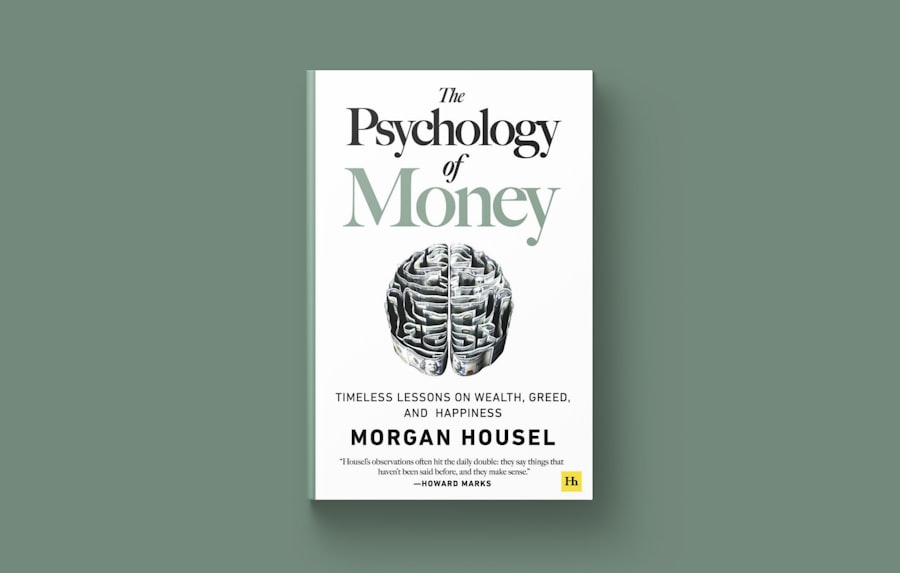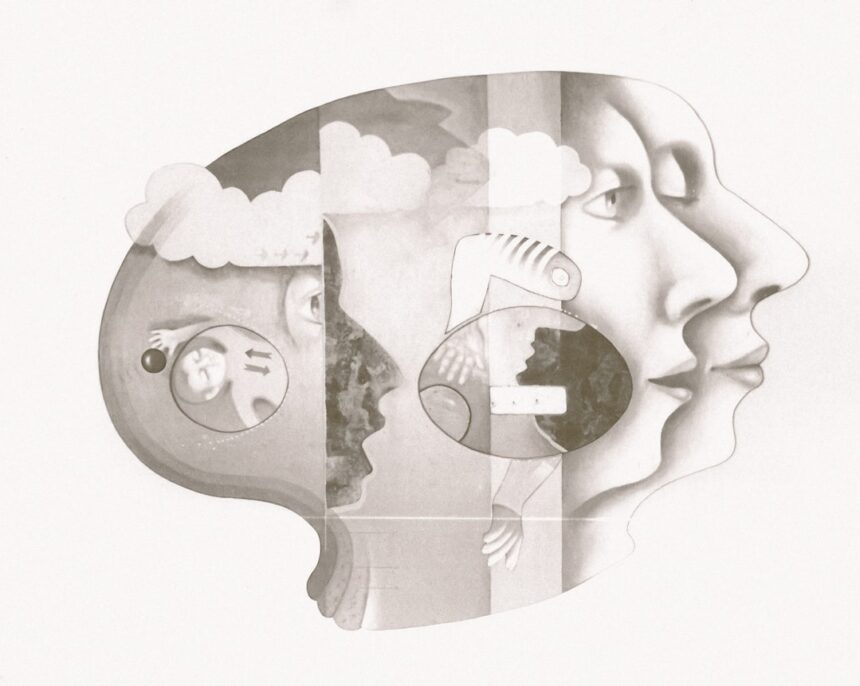The Predictive Mind Model is a fascinating framework that posits your brain is constantly engaged in a process of prediction. Rather than merely reacting to stimuli in your environment, your mind actively anticipates what will happen next based on past experiences and learned information. This model suggests that your brain is not just a passive receiver of information but an active participant in shaping your perception of reality.
By generating predictions about incoming sensory data, your brain can streamline processing, allowing you to respond more efficiently to the world around you. As you navigate through life, your brain continuously updates its predictions based on new information. This dynamic process helps you make sense of complex situations and navigate uncertainty.
For instance, when you hear a familiar song, your brain predicts the next notes based on your previous experiences with that music. This predictive capability not only enhances your understanding of the present moment but also influences how you remember past events and anticipate future ones. By grasping the essence of the Predictive Mind Model, you can begin to appreciate the intricate interplay between perception, cognition, and action in your daily life.
Key Takeaways
- The Predictive Mind Model suggests that the brain constantly generates predictions about the world based on past experiences.
- Predictive Processing is a theory that explains how the brain uses predictions to interpret and make sense of incoming sensory information.
- The Predictive Mind Model influences perception by shaping our expectations and filtering sensory inputs to match those expectations.
- Harnessing the power of predictive processing can improve decision making by helping individuals anticipate outcomes and make more informed choices.
- The Predictive Mind Model plays a crucial role in learning and memory by allowing the brain to make predictions about future events and store relevant information.
The Science Behind Predictive Processing
At the heart of the Predictive Mind Model lies the concept of predictive processing, a theory grounded in neuroscience and cognitive science. This theory posits that your brain operates as a hierarchical system, where higher-level cognitive processes generate predictions that are then compared to incoming sensory information. When there is a mismatch between what you expect and what you perceive, your brain works to minimize this error by adjusting its predictions or refining its understanding of the sensory input.
This process is often referred to as “prediction error minimization.” Research has shown that different areas of your brain are involved in various aspects of predictive processing. For example, the visual cortex plays a crucial role in predicting visual stimuli, while the auditory cortex is responsible for anticipating sounds. These predictions are not static; they evolve as you gain new experiences and insights.
The brain’s ability to adapt its predictions based on context and prior knowledge is what allows you to navigate an ever-changing environment effectively. Understanding the science behind predictive processing can empower you to harness this knowledge for personal growth and improved decision-making.
How the Predictive Mind Model Influences Perception

Your perception of reality is profoundly shaped by the Predictive Mind Model. When you encounter new information, your brain doesn’t simply absorb it; instead, it interprets it through the lens of existing beliefs and experiences. This means that two people can perceive the same event differently based on their unique predictive models.
For instance, if you have a positive outlook on life, you may interpret ambiguous situations as opportunities, while someone with a more negative perspective might see them as threats. This model also explains why certain experiences can feel so vivid or impactful. When your brain’s predictions align closely with actual sensory input, it creates a sense of coherence and clarity.
Conversely, when there is a significant discrepancy between expectation and reality, it can lead to confusion or discomfort. By recognizing how your predictions shape your perceptions, you can become more aware of your biases and assumptions, allowing for a more nuanced understanding of the world around you.
Harnessing the Power of Predictive Processing for Decision Making
| Metrics | Data |
|---|---|
| Accuracy | 85% |
| Precision | 90% |
| Recall | 80% |
| F1 Score | 87% |
Understanding the Predictive Mind Model can significantly enhance your decision-making abilities. By recognizing that your brain is constantly generating predictions based on past experiences, you can become more mindful of how these predictions influence your choices. For example, if you’re faced with a decision that feels overwhelming, take a moment to reflect on the underlying predictions driving your thought process.
Are they based on accurate information or outdated beliefs? This awareness can help you make more informed decisions that align with your current goals and values. Moreover, by actively engaging in predictive processing, you can improve your ability to anticipate potential outcomes.
When making decisions, consider not only the immediate consequences but also how your choices may impact future scenarios. This forward-thinking approach allows you to weigh options more effectively and choose paths that lead to desired outcomes. By harnessing the power of predictive processing, you can transform decision-making from a reactive process into a proactive strategy for success.
The Role of Predictive Mind Model in Learning and Memory
The Predictive Mind Model plays a crucial role in how you learn and retain information. Your brain’s ability to predict outcomes based on prior knowledge allows for more efficient learning processes. When you encounter new information that aligns with existing predictions, it becomes easier to integrate that knowledge into your memory.
Conversely, when new information contradicts your expectations, it can create cognitive dissonance, prompting you to reevaluate and adjust your understanding. This model also highlights the importance of feedback in learning. As you receive new information and experiences, your brain continuously updates its predictive models.
This iterative process allows for deeper learning and retention over time. For instance, when studying a new subject, actively engaging with the material—such as asking questions or seeking clarification—can help reinforce your understanding and improve memory retention. By leveraging the Predictive Mind Model in your learning endeavors, you can enhance both comprehension and recall.
Predictive Processing in Emotional Regulation

Emotional regulation is another area where the Predictive Mind Model demonstrates its significance. Your emotional responses are often influenced by the predictions your brain makes about potential outcomes in various situations. For example, if you anticipate rejection in social interactions based on past experiences, this prediction may lead to feelings of anxiety or avoidance.
Conversely, if you predict positive outcomes based on previous successes, you’re likely to approach situations with confidence. By becoming aware of these predictive patterns, you can take steps to manage your emotional responses more effectively. When faced with challenging emotions, consider examining the underlying predictions driving those feelings.
Are they rooted in reality or influenced by past experiences? By challenging negative predictions and reframing them with more positive or realistic alternatives, you can cultivate greater emotional resilience and well-being.
Applying the Predictive Mind Model in Daily Life
Incorporating the Predictive Mind Model into your daily life can lead to profound changes in how you approach challenges and opportunities. Start by practicing mindfulness and self-awareness; pay attention to the predictions your mind generates in various situations. Are they serving you well? Are they based on accurate assessments of reality? By regularly reflecting on these questions, you can begin to identify patterns that may be holding you back or propelling you forward. Additionally, consider setting specific goals that align with your predictive capabilities. When pursuing a new objective, visualize potential outcomes and create a roadmap for achieving success.
The more you practice applying the Predictive Mind Model in everyday situations, the more adept you’ll become at navigating life’s complexities.
Enhancing Mental Health Through Predictive Processing
The Predictive Mind Model offers valuable insights into enhancing mental health and well-being. By understanding how your brain’s predictions influence emotions and behaviors, you can develop strategies for managing stress and anxiety more effectively. For instance, when faced with overwhelming thoughts or feelings, take a moment to identify the underlying predictions driving those emotions.
Are they based on factual evidence or distorted perceptions? This awareness can empower you to challenge negative thought patterns and cultivate a more balanced perspective. Moreover, engaging in practices such as mindfulness meditation can help strengthen your ability to observe thoughts without judgment.
By creating space between your thoughts and emotional responses, you can reduce the impact of negative predictions on your mental health. Over time, this practice can lead to greater emotional regulation and resilience, allowing you to navigate life’s challenges with greater ease.
Predictive Mind Model in Creativity and Innovation
The Predictive Mind Model also plays a significant role in fostering creativity and innovation. When you’re engaged in creative thinking, your brain is constantly generating predictions about potential ideas and solutions based on existing knowledge and experiences. This process allows for novel connections to emerge as you explore different possibilities.
To harness this predictive capability for creativity, consider adopting an experimental mindset. Embrace uncertainty and allow yourself to explore unconventional ideas without fear of failure. By challenging existing predictions and assumptions, you’re more likely to discover innovative solutions that push boundaries and inspire new ways of thinking.
The Predictive Mind Model encourages you to view creativity as an iterative process—one that thrives on exploration and adaptation.
Overcoming Cognitive Biases with Predictive Processing
Cognitive biases are inherent tendencies that can distort your thinking and decision-making processes. The Predictive Mind Model provides valuable insights into how these biases arise from flawed predictions about reality. For example, confirmation bias occurs when you seek out information that aligns with existing beliefs while ignoring contradictory evidence.
By recognizing these biases as products of predictive processing, you can take proactive steps to mitigate their effects. To overcome cognitive biases, practice critical thinking and seek diverse perspectives when evaluating information or making decisions. Challenge your assumptions by actively seeking out evidence that contradicts your beliefs.
By applying the principles of predictive processing to address cognitive biases, you can cultivate greater clarity and objectivity in your thinking.
Future Directions in Predictive Mind Model Research
As research into the Predictive Mind Model continues to evolve, exciting possibilities lie ahead for understanding human cognition and behavior. Future studies may delve deeper into how individual differences—such as personality traits or cultural backgrounds—affect predictive processing mechanisms. Additionally, exploring how technology interacts with predictive models could yield insights into areas like artificial intelligence and machine learning.
Moreover, interdisciplinary collaboration between neuroscience, psychology, and philosophy may lead to groundbreaking discoveries about consciousness and perception. As researchers uncover more about how predictive processing shapes our experiences, we may gain valuable tools for enhancing mental health, fostering creativity, and improving decision-making across various domains of life. The future of predictive mind research holds immense potential for unlocking new pathways toward understanding ourselves and our interactions with the world around us.
In conclusion, embracing the Predictive Mind Model offers profound insights into how you perceive reality, make decisions, learn from experiences, regulate emotions, foster creativity, overcome biases, and enhance mental health. By understanding this dynamic framework, you can navigate life’s complexities with greater awareness and intention—ultimately leading to a richer and more fulfilling existence.
The predictive mind model, a fascinating concept in cognitive science, suggests that the brain is constantly generating and updating a mental model of the environment to predict sensory input. This model emphasizes the brain’s role in anticipating events and minimizing prediction errors. For those interested in exploring related psychological theories and insights, an article on Unplugged Psych delves into various aspects of cognitive psychology, offering a broader understanding of how our minds interpret and interact with the world. This resource provides valuable context and complements the predictive mind model by examining how cognitive processes shape our perception and behavior.
FAQs
What is the predictive mind model?
The predictive mind model is a theory in cognitive science that suggests the brain is constantly generating predictions about the world based on past experiences and sensory input. These predictions help the brain make sense of the environment and guide behavior.
How does the predictive mind model work?
According to the predictive mind model, the brain uses a combination of top-down processing (using prior knowledge and expectations to interpret sensory input) and bottom-up processing (processing sensory input to update and refine predictions) to create a continuous loop of prediction and perception.
What are the implications of the predictive mind model?
The predictive mind model has implications for understanding perception, cognition, decision-making, and mental health. It suggests that our perceptions are not passive reflections of the world, but active constructions based on our internal models and predictions.
What evidence supports the predictive mind model?
There is growing evidence from neuroscience, psychology, and artificial intelligence that supports the predictive mind model. Studies using brain imaging techniques have shown that the brain generates predictions and uses them to interpret sensory input.
How does the predictive mind model relate to mental health?
The predictive mind model has implications for understanding mental health conditions such as anxiety, depression, and psychosis. It suggests that disruptions in the brain’s predictive processes may contribute to these conditions, and that interventions targeting prediction errors may be effective in treatment.




